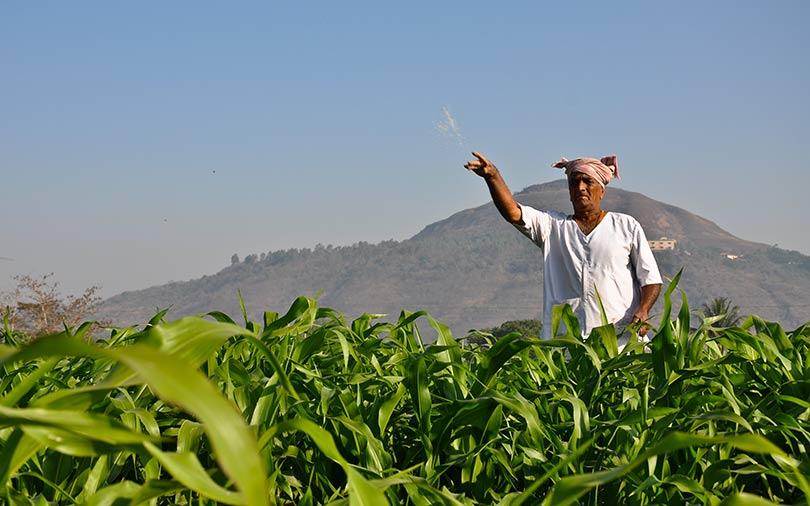Indian agricultural growth and related sectoral investment opportunities have always held promise, but have never materialised. For the year that ended in March 2018, the gross domestic product (GDP) of agriculture grew 2.1%, industry 4.4% and services 8.3%. Despite the lower growth, agriculture still makes up 16% of India’s latest annual GDP figures. Perhaps more than any other sector, agriculture is inextricably tied to India’s long-term growth story. But where can the value in this opportunity be captured and cultivated?
Historically, the complexity of investing in agriculture combined with the heightened political sensitivity of the sector in India has left the sector starved of innovation and investment, with participants eager for a more robust programme of reforms and varied sources of investment. But we see several dynamics at play today which are inadvertently working in unison to create an environment and circumstances with the potential to awaken Indian food and agriculture from its slumber. More importantly, these dynamics are pushing the food value chain to evolve, modernise and innovate, the net result of which will be the emergence of several large-scale national champions.
Role of private equity and venture capital
Deep knowledge and the ability to work closely with experts and promoters in the sector are key to successfully investing in food and agriculture. Category leaders across the sector are typically multi-generational family businesses that require insight from prospective investors. When I formed Mandala Capital in 2008, no private equity fund manager had exposure to the sector; today almost every major fund has one or two investments in this sector. This signifies the market’s recognition of opportunity and growth in agriculture.
It is a foregone conclusion that private equity and venture capital will continue to pursue opportunities in the sector. The main challenge will be identifying the inflection (turning) point in the supply chain for structuring meaningful investments. India’s supply-demand gap is an opportunity that necessitates scale and innovation to meet immediate and long-term growth needs. Early-stage venture capital investors may struggle to find scale for the innovations they are bringing to the market. Consumer-facing investors may find growth but will struggle with the risks accompanying consumer and marketing spending. Farmland investors will be unable to invest in India due to public policy and the nature of farmland holdings. So where does this leave a prospective investor?
Businesses that reside in the supply chain, with respect to farmer inputs or delivery of products and services destined for the consumer through retailers or FMCG (fast-moving consumer goods) companies, are best poised for scale. These companies will need to build capacity for the sectoral opportunity and consumer demand. Investments to expand capacity of the supply chain will produce affordable and accessible food at scale and unlock value for investor.
The three forces – consumer behaviour, regulatory effects and farm-level changes – will prompt a switch from unorganised to organised sector. The growth curve will favour sector champions with size and scale. As these companies look to increase capacity, expand into new states within India, launch new products and strive for greater compliance, governance and transparency, there will emerge a real opportunity for private equity investors to play a defining role in this story.
The three forces – consumer behaviour, regulatory effects and farm-level changes – talked above are as follows:
Evolving consumer habits
India has typically had a small percentage of the total population that has followed consumption trends and trajectories of developed economies. Over time, technology and education have enabled the expansion of this demographic to include India’s middle- and lower-income consumer. The speed and adoption of this change has been significant. The consumer is increasingly and consistently demanding more of everything: more food, more choice, more safety, more quality and an overall awareness of personal health, nutrition and environment.
Regulatory drivers
Historically, government policies alone, especially those on agriculture, have not been able to reverberate across the sector to generate meaningful and substantial change. Ironically, the gap between government policy and real sector change has recently narrowed with the help of policies in non-agriculture areas that have created the right ingredients to develop higher quality companies across the food-value chain.
For example, GST (goods and services tax), Ind-AS (Indian Accounting Standards), NCLT (National Company Law Tribunal) and others have expedited the move from unorganised to organised sector across the food-value chain and increased corporate governance, civic compliance and transparency across companies. Consumer focus on health and safety in food and the environment has resulted in stronger enforcement of laws by the pollution control boards and FSSAI (Food Safety and Standards Authority of India). In addition, the wide open regulatory environment for online retail has created a large competitive landscape that could finally be the push food retail and food logistics need to create big service providers.
Farm-level changes
Small farm holding, low mechanisation, poor technology and low yields have traditionally characterised farm-level activities in India. Several drivers are now making changes at the farm level and throwing off the inertia of the past. Labour shortages on farms are forcing technology adoption and mechanisation. Floods, earthquakes, El Niño, La Niña, droughts and other weather patterns have further driven farmers towards technology adoption. Smarter fertiliser use and delivery systems, more efficient use of water, better quality seeds and soil conservation are now being readily adopted. Contract farming and closer partnerships with larger food-processing companies will drive these changes faster and reduce inefficiencies across the value chain.
Uday Garg is managing partner at Mandala Capital, an India-focused private equity firm. He founded Mandala in 2008. Views are personal.






